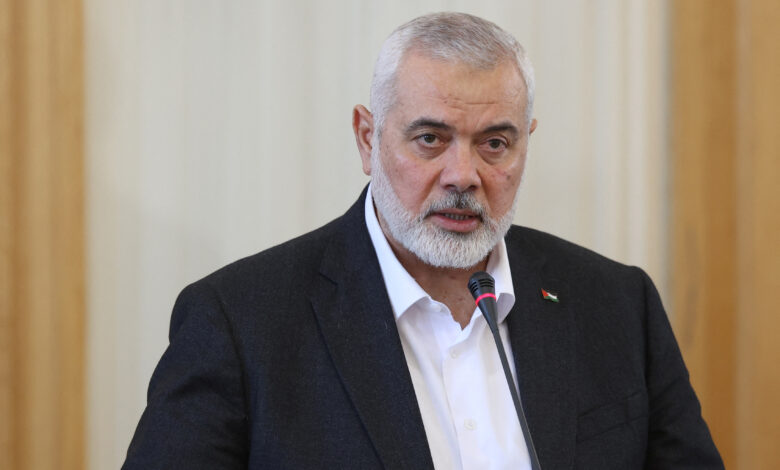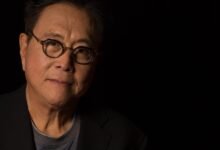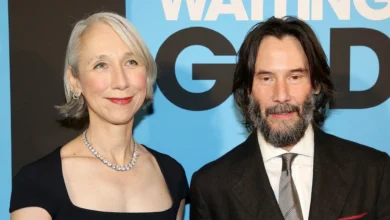Michael Georgy – A Respected Voice in International Journalism

Michael Georgy is a name that resonates deeply in the world of international journalism. With a career spanning over two decades, he has covered some of the most pressing geopolitical events, wars, and humanitarian crises across the globe. His writing, often raw and intensely human, reveals not just facts, but the emotional layers behind headlines. Known for his long-standing work with Reuters, Michael Georgy has become a trusted correspondent in some of the world’s most turbulent regions, from the Middle East to Asia.
Unlike many journalists who stay within the safety net of studios or offices, Georgy built his career on the ground. His passion for frontline reporting allowed him to connect with individuals directly affected by conflict, political instability, and economic downturns. His reports are not only factual accounts but also testimonies of human endurance, fear, hope, and resilience.
Early Career and Global Rise
The Start of a Passionate Reporting Journey
Michael Georgy began his career with a thirst for storytelling and a commitment to truth. After earning his academic credentials, he quickly gravitated toward foreign correspondence—a field that demanded both courage and empathy. He soon found his professional home at Reuters, a global news agency known for its rigorous journalism and international reach.
His early assignments included volatile regions in the Middle East, where he was often among the few foreign correspondents willing to report from dangerous areas. Rather than relying on second-hand information or press briefings, Georgy consistently chose to be in the heart of the story. This hands-on approach established his reputation not only as a journalist but also as someone willing to risk his life to ensure the truth was told.
Breakthrough Coverage and War Reporting
One of the defining chapters of Michael Georgy’s career came during the Iraq War. He was stationed in Baghdad during some of the most critical moments of the U.S.-led invasion and subsequent occupation. His reporting offered a balanced lens, focusing not just on military operations, but also on how war impacted ordinary Iraqi citizens. Families torn apart, children growing up amid chaos, and communities clinging to normalcy amidst destruction—all these elements found voice in Georgy’s dispatches.
Over the years, he would go on to cover uprisings during the Arab Spring, the Syrian Civil War, the plight of refugees, and the struggle of women and minorities under oppressive regimes. He gained exclusive access to areas that most media outlets could not reach, bringing global audiences close to realities that were otherwise hidden.
Work in the Middle East and Beyond
Telling the Untold Stories of the Region
The Middle East has always been a significant focus of Michael Georgy’s journalistic endeavors. His understanding of the region’s cultural, political, and religious complexities allowed him to report with nuance and depth. Unlike many foreign correspondents who relied on translators and guides, Georgy often immersed himself directly in the societies he reported on, building trust with locals and sources over time.
This immersion helped him break major stories, some of which had political and diplomatic repercussions. His reports often highlighted systemic human rights abuses, governmental crackdowns, and the silent suffering of civilians caught between powers. At the same time, he also spotlighted stories of resilience—such as communities rebuilding after bombings or women asserting their agency in conservative societies.
Broadening the Scope – Reporting from Asia
While Michael Georgy is primarily associated with Middle Eastern affairs, his journalistic portfolio extends far beyond. His assignments have taken him to South Asia and Southeast Asia, where he covered everything from economic reform to ethnic violence and climate disasters. In countries like Pakistan and Myanmar, he brought international attention to stories that were underreported or misrepresented.
Whether writing about Rohingya refugees or covering political tensions in Afghanistan, Georgy’s work remained anchored in human stories. He consistently emphasized how large-scale political movements impacted individual lives—students, farmers, women, refugees, and activists. This human-centered journalism distinguished his reports in an era often dominated by sensationalist headlines.
Style, Influence, and Recognition
A Voice of Compassion and Clarity
What sets Michael Georgy apart in the crowded field of journalism is not just the scope of his coverage but the style of his storytelling. His writing is immersive yet concise, vivid yet restrained. He never sensationalizes the subjects of his reports, choosing instead to let their stories speak for themselves. This approach has earned him deep respect not only among readers but also within journalistic circles.
His reports are often used in academic studies, NGO briefings, and policymaker analyses because of their credibility and depth. His ability to communicate complex political developments in accessible language also made his work popular with a general audience, ensuring his stories reached both policymakers and ordinary citizens.
Recognition and Awards
Michael Georgy has received multiple accolades over his career. Though he has always been modest about his achievements, peers in journalism recognize his courage, ethical reporting, and dedication to truth. Some of his most impactful work has been shortlisted or awarded by international press associations and human rights groups.
He’s also been invited to speak at journalism conferences, universities, and global forums where media integrity and freedom of speech are debated. His insights—drawn from years of first-hand experience—offer invaluable perspective on how to report responsibly in conflict zones.
The Challenges and Ethics of Conflict Journalism
Facing Personal Risk and Moral Dilemmas
Being a conflict journalist isn’t just about bravery—it’s about navigating a web of ethical decisions on a daily basis. Michael Georgy has often spoken about the dilemmas reporters face in war zones: Should one publish graphic content if it reveals truth, or would it traumatize the audience? How do you protect your sources in authoritarian regimes?
These are not theoretical questions for Georgy. He has had to make those decisions under the threat of violence and censorship. In interviews, he has emphasized the importance of integrity—never compromising the safety of those he covers and always remaining transparent with his audience.
Emotional Toll and Long-Term Impact
Years of covering war, poverty, and suffering take a toll on even the strongest journalists. Michael Georgy has acknowledged the emotional exhaustion that comes from witnessing so much pain. While he rarely makes himself the focus of his stories, the weight of what he has seen inevitably shapes his writing.
Despite these challenges, he remains committed to the profession. For Georgy, journalism is not just a job—it’s a moral duty. His decision to continue reporting, even after two decades of frontline exposure, is a testament to his resilience and sense of purpose.
Legacy and Continued Relevance
Inspiring a New Generation of Journalists
In an era where fake news and clickbait threaten the foundations of journalism, Michael Georgy’s work serves as a guiding light. His career reminds aspiring reporters that true journalism requires time, courage, and empathy. He has mentored younger journalists, encouraged ethical practices, and always pushed for field-based reporting over desk analysis.
Several of his protégés have gone on to build careers in international reporting, citing Georgy as their role model. His influence, therefore, extends beyond his own articles—it’s embedded in a new generation of journalists shaped by his example.
Continued Contributions to Global Awareness
Though some journalists eventually transition to editorial roles or retire from fieldwork, Michael Georgy continues to contribute. His recent stories still tackle timely issues—conflict, migration, climate change, and social justice. In today’s fragmented media landscape, his clear, compassionate voice is more vital than ever.
Georgy’s writing doesn’t just inform—it provokes thought, inspires action, and fosters understanding across cultures. That enduring impact is the hallmark of great journalism.
Final Thoughts
Michael Georgy’s name is synonymous with journalistic integrity, courage, and storytelling excellence. In a world often overwhelmed by misinformation and sensationalism, he stands out as a beacon of authenticity and depth. His articles don’t just report events—they humanize them, offering readers a rare glimpse into the realities behind headlines.
By continuing to bring attention to the world’s forgotten corners, Michael Georgy ensures that the stories of the voiceless are not only heard but remembered.
FAQs
Who is Michael Georgy?
Michael Georgy is a veteran international journalist known for his work with Reuters. He has reported from conflict zones and political hotspots around the world.
What regions has Michael Georgy covered?
He has extensively reported from the Middle East, South Asia, and Southeast Asia, focusing on war, human rights, and political transitions.
What makes Michael Georgy’s journalism unique?
His immersive, human-centered approach distinguishes his work. He prioritizes ethical storytelling and first-hand reporting.
Has Michael Georgy received any awards?
Yes, he has received recognition from international press bodies and human rights groups for his in-depth, impactful journalism.
Is Michael Georgy still active in journalism?
Yes, he continues to contribute stories and remains an influential voice in global journalism.





